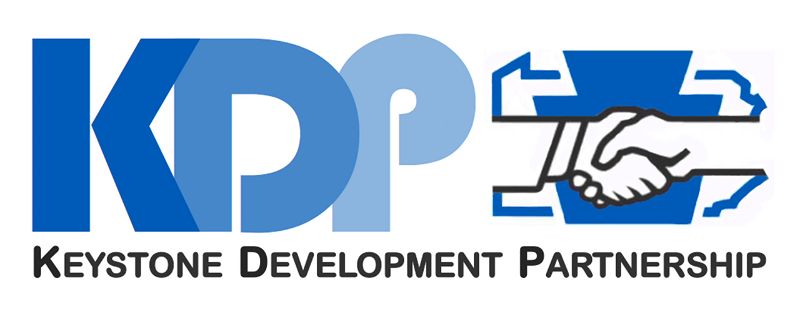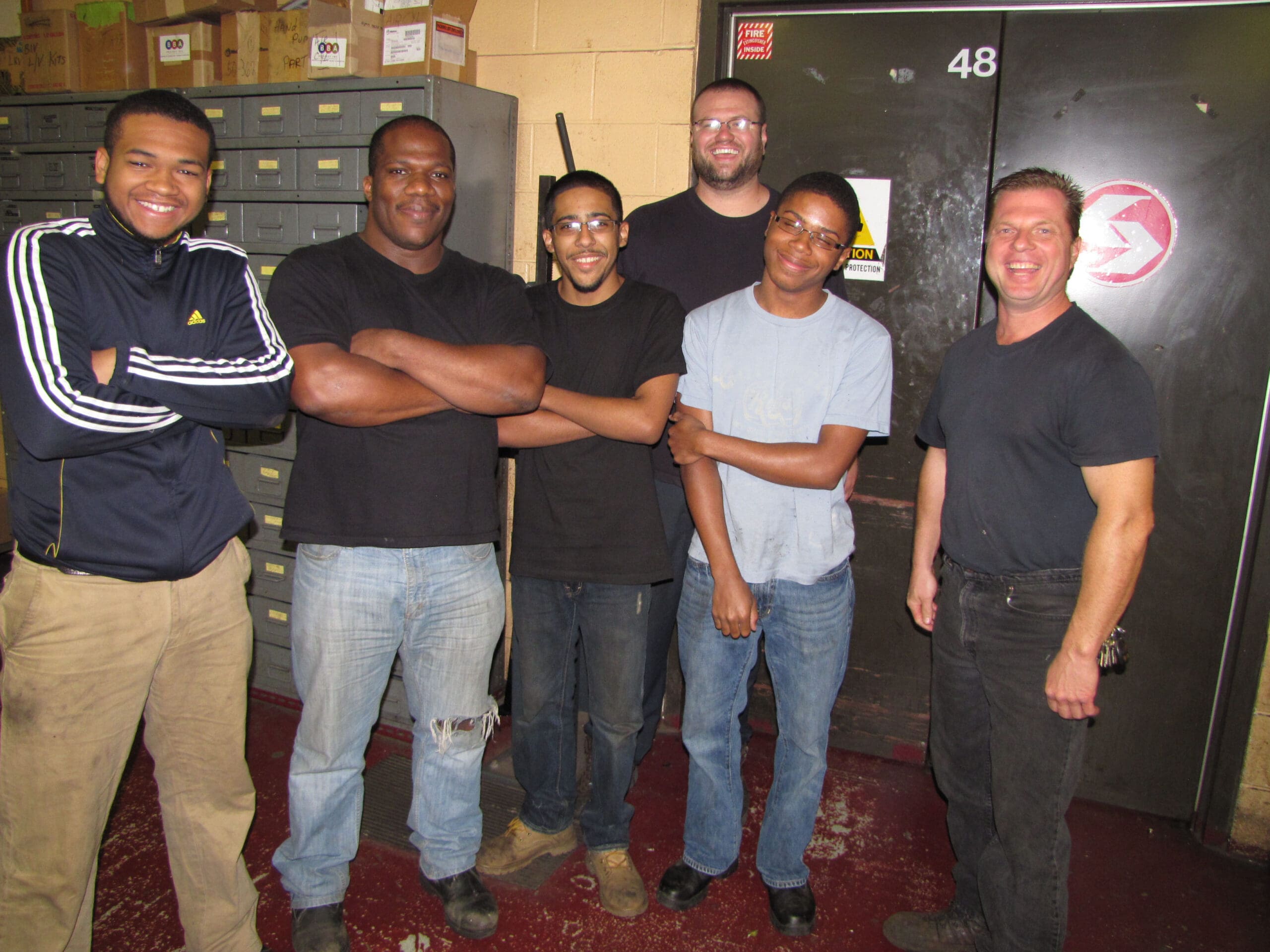
California’s Proposal for Apprenticeship Growth Requires New Approach
Creating a comprehensive modern apprenticeship system in California will require a change in the way the state designs, launches, and implements programs.

November 22, 2019
This profile highlights how KDP, a Pennsylvania intermediary, uses mentorship and group sponsorship to strengthen and develop the IMT.

Intermediary Profile
Stuart Bass, executive director of the Keystone Development Partnership (KDP), says the key to success for any workforce development intermediary boils down to one thing: relationships.
A nonprofit founded by the Pennsylvania AFL-CIO in 2005, KDP is an intermediary that monitors, documents, and coordinates training programs throughout the Keystone State. KDP’s ability to bring organizations together and connect employers and unions to workforce experts, training providers, and funding has enabled the organization to do fruitful work with more than 300 businesses and counting.
“To establish that network, you have to bring value,” Bass said. “The KDP team has the reputation now of bringing people together—our network of workforce development agencies, training providers, unions, and employers as well as the workforce.”
With offices across Pennsylvania—in Pittsburgh, Harrisburg, and Philadelphia—KDP develops community partnerships through close work with workforce boards, unions, companies, training providers, industry associations, community-based organizations, and public agencies. KDP connects with partners in a range of industries vital to Pennsylvania’s economy: logistics, public transit, manufacturing, energy, and building and construction. KDP’s efforts to help build training programs strengthen those sectors’ workforces, benefitting not only employers, but also workers by providing access to career ladders for hundreds of state residents.
“Employers, no matter the industry, focus on production, providing services, and want qualified candidates showing up at their door. They need to partner with training providers—and KDP facilitates that conversation,” said Bass. KDP aligns organizations for customizing programs and to create an economy of scale within an industry by region.
But in a job market with low unemployment and a dearth of qualified workers, employers of all sizes have needed to strengthen their internal training offerings. And they’re turning to intermediaries like KDP for help implementing “grow your own technician” programs.
As part of the national American Apprenticeship Initiative grant, in 2015 JFF received funding to expand its work with multiple partners including KDP to establish and promote the Industrial Manufacturing Technician hybrid apprenticeship. The IMT apprenticeship targets new and incumbent front-line production workers to increase the number qualified individuals who enter middle- and high-skilled occupations within the manufacturing sector. KDP promotes the IMT as a stackable credential to prepare entry-level production workers for the higher-skilled occupations.
In its efforts to help hundreds of businesses develop their workforces, KDP has found two approaches to be especially effective: group sponsorship and mentoring.

In a group sponsorship model, an intermediary brings employers together and helps them jointly prepare and register an apprenticeship to train people to develop skills that they all need. KDP works with industry associations, unions, training providers and other organizations to serve as a convener and administrator of the program.
The challenge in such a scenario is that the employers may be competitors, Bass said. “But [all manufacturers] need blueprint reading, pneumatics—whatever the common general skill training is,” he noted. “That is where the network comes in to create an economy of scale.”
To help employers see beyond the fact that they’re teaming up with competitors and embrace the collective benefits of developing a regional pool of well-qualified workers, KDP uses its connections with workforce boards, training providers, and unions to gain inroads to key business leaders.
These groups, such as the nonprofit Catalyst Connection, the German American Chamber of Commerce, the Manufacturers’ Association of Central PA, Harrisburg Area Community College, and Pittsburgh’s Allegheny County Community College, serve as sponsors. They take on the administrative work involved in setting up a Registered Apprenticeship program—a significant help for small businesses in particular. And by pulling together a group of similar employers, they are able to efficiently provide sponsor services to multiple businesses while developing a workforce made up of people whose skills are in demand across a particular region. With KDP assistance, the PA AFL-CIO received a grant from the PA Department of Labor and Industry to form a group sponsorship for employers represented by the United Steelworkers, United Auto Workers, International Association of Machinists and Aerospace Workers, and other affiliated local unions.
Bass said the group sponsorship model benefits both the sponsor organizations and businesses. For example, he said, a community college participating in an apprenticeship gets an enrollment boost because the employers send their apprentices to the college. The college doesn’t have to recruit students or worry about job placement for the graduates, because the apprentices are already employed.
As is the case with group sponsorships, KDP has found that apprenticeships are more successful when they include mentor programs. However, some employers question the value of having veteran employees take time away from work to provide guidance and support to trainees.
“The culture at the job site, it’s often not a learning culture,” Bass said. “The company will see the process of assigning a mentor as having two people do the job. It raises the cost.”
To address such concerns, KDP aims to show employers how the mentoring relationship helps transfer knowledge from veteran employees to newcomers—and that mentors are an essential part of the learning and apprenticeship process. The mentors have an important role in the development of a strong and capable workforce as role models, coaches, teachers, and advisers for apprentices. They are the ambassadors of the apprenticeship program.
As part of that effort, KDP has developed a one-day workshop that includes interactive exercises on learning styles, communication skills, and problem solving. Those workshops end the day with role-playing scenarios.
The workshops emphasize how mentorship paired with an apprenticeship’s classroom instruction help participants apply what they are learning. Additionally, they show that serving as a mentor can help incumbent workers develop leadership skills, and that the experience opens doors to new opportunities.
Using a train-the-trainer model, KDP invites a full-time employee of the company to its workshops so that individual can take over running the workshops and help prepare future cohorts of mentors and apprentices.
KDP’s efforts to coordinate training programs, and its emphasis on group sponsorship and mentoring, are paying off. In the fourth year of the five-year American Apprenticeship Initiative grant for the IMT, the organization has helped more than 860 apprentices enroll in programs nationally with over 250 Pennsylvanians taking part in apprenticeship programs in which they earn paychecks while they learn new skills that employers are seeking.
“In my opinion, the intermediary organizes organizations with a potential for system change that can have a positive impact on businesses, labor organizations, government agencies, and communities. Apprenticeships thrive in an eco-system of collaborative efforts by industry stakeholders in a region. These partnerships don’t just fall off of a desk. It takes hundreds of phone calls, emails, and meetings to make something happen. Someone has to take responsibility for that.”
The Industrial Manufacturing Technician (IMT) apprenticeship program provides front-line manufacturing production workers with the knowledge and competencies needed in the advanced manufacturing environment. For more information, including resources for employers, workforce development organizations, unions, and apprentices, visit IMTApprenticeship.org.
This workforce product was funded by a grant awarded by the U.S. Department of Labor’s Employment and Training Administration. The product was created by the recipient and does not necessarily reflect the official position of the U.S. Department of Labor.

Creating a comprehensive modern apprenticeship system in California will require a change in the way the state designs, launches, and implements programs.

Expanding and creating access to high-quality apprenticeship and work-based learning. Apprenticeship, pre-apprenticeship, and work-based learning are proven models for supporting economic advancement for workers, but many employers struggle to implement high-quality programs. And despite significant…